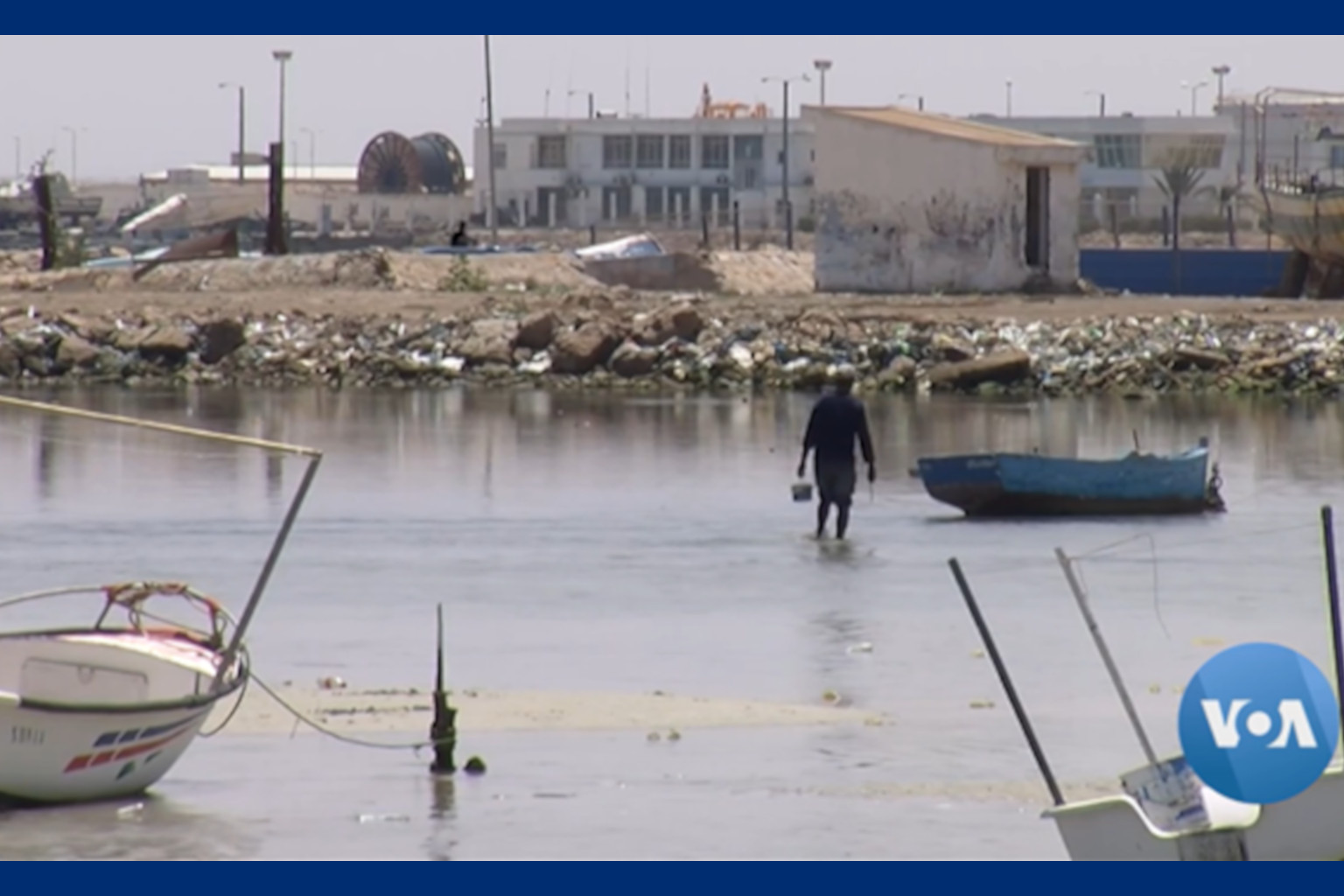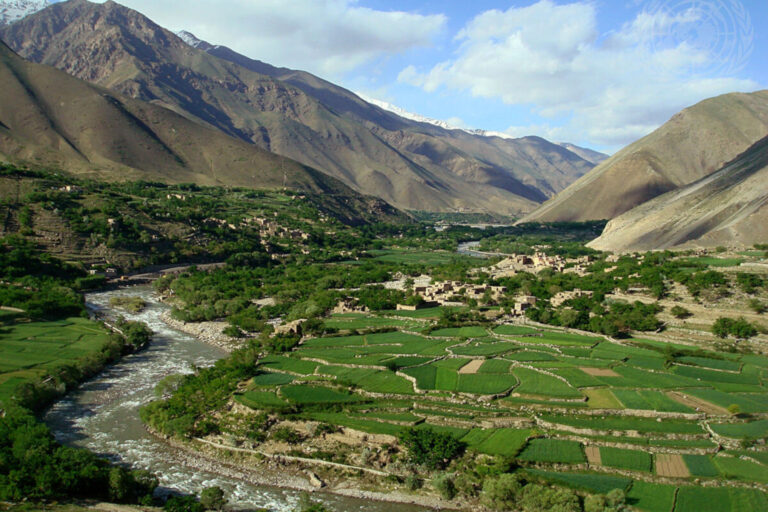North African states and communities are no strangers to careful water management and its relevance to effective governance in challenging times. Old underground water channels, ingenious methods of water storage and collection, to today’s dams and hydropower projects, are time-spanning infrastructure innovations and techniques. They reflect the strategic importance of the careful conservation and use of water in one of the most water-stressed regions in the world.
Maghreb countries (Libya, Tunisia, Algeria, Morocco, and Mauritania) receive an average of less than 1,000 cubic meters of renewable fresh water available per person per year.¹,² However, the growing global climate emergency is placing greater stress on the region’s water infrastructure, as the level, intensity, and variability of seasonal precipitation are radically changing with the climate. Similar climatic systems, hydrologic cycles, and geography mean that North African countries tend to suffer from similar climate-induced phenomena such as severe prolonged droughts and devastating wildfires.
Experts predict that precipitation will continue to decline in the coming years, even as the population grows—necessitating urgent interventions to pre-empt shortages, reduced hydropower, and agriculture capacity. Continued inaction will exacerbate the knock-on effects on sectors already experiencing social, economic, and political headwinds due to persistent instability and conflict.
However, this does not just apply to North Africa.
According to the United Nations’ (UN) Intergovernmental Panel on Climate Change (IPCC), more than 500 million people across the globe face significant and interconnected climate risks.³ It is just for the Maghreb, that things will be worse. Average temperatures are expected to be 20 percent higher than the rest of the world in the coming years,⁴ but the sub-region is already experiencing climate-related shocks in the form of record-breaking heat waves, acute water shortages, biodiversity losses due to wildfires, and major risks to agricultural production.
Additionally, vulnerable sections of the population and those trapped in fragile contexts experiencing extreme poverty must now grapple with ever-scarcer water resources as populations grow, income levels rise, and urbanization intensifies—further compounding woes. Put simply, unmitigated climate risks are continuously adding new complexities to this sub-region in areas such as labor, human mobility, settlement, and habitability, as accelerated environmental degradation further endangers food and water security.
Already, the UN’s Food and Agriculture Organization (FAO) predicts that absent swift action, crop yields around the world could be reduced by as much as 20% by 2050,⁵ with rain-fed farming systems suffering the greatest impacts. Reduced water resources will also threaten livestock rearing due to accelerated land degradation, reduced feed, and shrinking pasturelands. Even at sea, rising temperatures and reduced rainfall will also impact fisheries, which illustrates just how much inaction can easily and quickly result in warming becoming a crisis multiplier.
In the Maghreb, some of these impacts are already evident and, in some cases, becoming more prevalent. Poorer, rural communities are unable to maintain adequate levels of agricultural production to sustain their livelihoods since farming is a water-intensive activity extremely vulnerable to highly variable precipitation levels.
It does not end there.
In countries like Morocco, Tunisia, and Algeria, where the agricultural sector generates more than 10 percent of GDP,⁶ and is a major non-oil export, even the slightest disruption will have exponential effects on the economy and society. After all, 20-33% of the labor force in Morocco and Tunisia,⁷ for instance, derive their livelihood from the agriculture sector, which means as rainfall declines, forests burn and severe droughts become more frequent, large swaths of populations in North Africa could join the swelling ranks of jobless, desperate and impoverished.
It is no secret that the availability of water, uninterrupted access to it, and its well-managed use have enormous positive impacts on society such as agricultural transformations that can foster greater food security to sustain livelihoods, improve citizen wellbeing, and ultimately boost resilience against future shocks—including non-climate change-related ones. However, when all five Maghreb countries are considered highly or extremely water-stressed, additional risks and slow or inadequate responses to them are likely to upend the sub-region’s already fragile food-water-energy nexus.
This could ultimately spark mass movements among populations that have little choice but to flee inhospitable zones, acute shortages of necessities, domestic or regional instability, and conflict. Worse yet, there has been very little progress so far because according to the indicators used in the UN’s first-ever assessment of water security in Africa, the entire continent has only improved its water security by 1.1%—between 2015 and 2020.⁸
It is long past due for the Maghreb to exploit its centuries-long history of tried-and-tested, sustainable water management practices to combat intensifying water scarcity. Modern, water-intensive farming of decadent decades past must give way to work alongside traditional irrigation and water management such as Tunisia’s sandy soil irrigation techniques that allow farms to thrive all year round and have become historical legacies. The same applies to Algeria’s “foggara” or Moroccan “khettara“—i.e., subsurface irrigation systems designed to deal with the aridity and heat of the Sahara, allowing constant water flows and preventing evaporation.
Even then, it will still not be enough since rapid urbanization has led to more than half of the sub-region populations living in coastal zones far from inland water sources like groundwater and mountain regions with greater precipitation. To date, North African countries are still struggling to design and build infrastructure to transport water to densely populated coastal cities in ways that do not drain desert aquifers and deplete groundwater—a finite resource—faster than it can be replenished.
In addition, there is little political will or capacity to engage in environmental or “green” urban planning that would allow densely populated cities to more efficiently use energy and water. As temperatures rise and rural populations move towards urban areas, it will only worsen resource scarcity and introduce new constraints before the sub-region can adapt, if at all. Given water security’s criticality, intensifying competition over this precious resource without adequate safeguards can quickly devolve into conflict among local communities experiencing heightened fragility, and nation-states given water scarcity’s destabilizing impacts at home.
On the other hand, cooperative engagement and management of shared water resources can catalyze sustainable cooperation even among rival actors or the most diametrically opposed communities. Fortunately, the lack of transboundary rivers and lakes means that the Maghreb is spared from the tensions and potential conflicts between riparian states over shared water resources, which are to likely occur with greater frequency as the effects of climate change may worsen in the coming decades. However, sprawling aquifers that tend to cross national borders can become a source of new conflict since—contrary to commonly held perceptions, groundwater sources are not infinite.
Morocco and Algeria are already locked in a quixotic rivalry over the Bounaim-Taffna basin,⁹ with both sides engaged in its reckless overexploitation with little to no prospects of any bilateral cooperation in managing this precious resource, despite the precedent set by the collaborative management of the North Western Sahara Aquifer System. It is unlikely that Rabat or Algiers will compartmentalize other sources of their rivalry to jointly manage the Bounaim-Taffna catchment, which would be mutually beneficial.
Unfortunately, as pressing domestic challenges mount, Maghreb countries will eschew much-needed cooperation for inaction or piecemeal interventions that will only aggravate climate-related woes even when there is sufficient capacity, expertise, will, and funding to safeguard the sub-region’s most vulnerable—its poor.
References
¹ Baggio, Guilherme, et al. “Freshwater Availability Status Across Countries for Human and Ecosystem Needs.” Science of the Total Environment, vol. 792, Elsevier BV, Oct. 2021, p. 148230. https://doi.org/10.1016/j.scitotenv.2021.148230
² “Freshwater Resources in the MENA Region: Risks and Opportunities.” Middle East Institute, www.mei.edu/publications/freshwater-resources-mena-region-risks-and-opportunities
³ IPCC, 2019: Climate Change and Land: an IPCC special report on climate change, desertification, land degradation, sustainable land management, food security, and greenhouse gas fluxes in terrestrial ecosystems [P.R. Shukla et al]
⁴ Cramer W, Guiot J, Fader M, et al (2018) Climate change and interconnected risks to sustainable development in the Mediterranean. Nature Climate Change 8, 972-980, DOI: 10.1038/s41558-018-0299-2
⁵ FAO, IFAD, UNICEF, WFP and WHO. 2018. The State of Food Security and Nutrition in the World 2018. Building climate resilience for food security and nutrition. Rome, FAO.
⁶ Statista. “Contribution of Agriculture Sector to GDP in North Africa 2021, by Country.” Statista, 20 June 2023, www.statista.com/statistics/1193834/agriculture-as-a-share-of-gdp-in-north-africa-by-country/#:~:text=Overall%2C%20the%20agriculture%20sector%20plays,national%20GDP%20of%20the%20region
⁷ Statista Research Department. “Employment in Agriculture in North African Countries 2020.” Statista, 21 June 2023, www.statista.com/statistics/1230239/employment-in-agriculture-in-north-africa-by-country/#:~:text=Employment%20in%20agriculture%20in%20North%20African%20countries%202020&text=The%20sector%20accounted%20for%2050.6,percent%20of%20the%20total%20employment
⁸ Perera, Duminda. “Worrying Insights from UN’s First-ever Assessment of Water Security in Africa.” The Conversation, www.theconversation.com/worrying-insights-from-uns-first-ever-assessment-of-water-security-in-africa-179577
⁹ Zarhloule, Yassine et al. “Water as parameter of cooperation between Morocco and Algeria: the case of transboundary stressed aquifers of Bounaïm-Tafna basin.” (2010).




